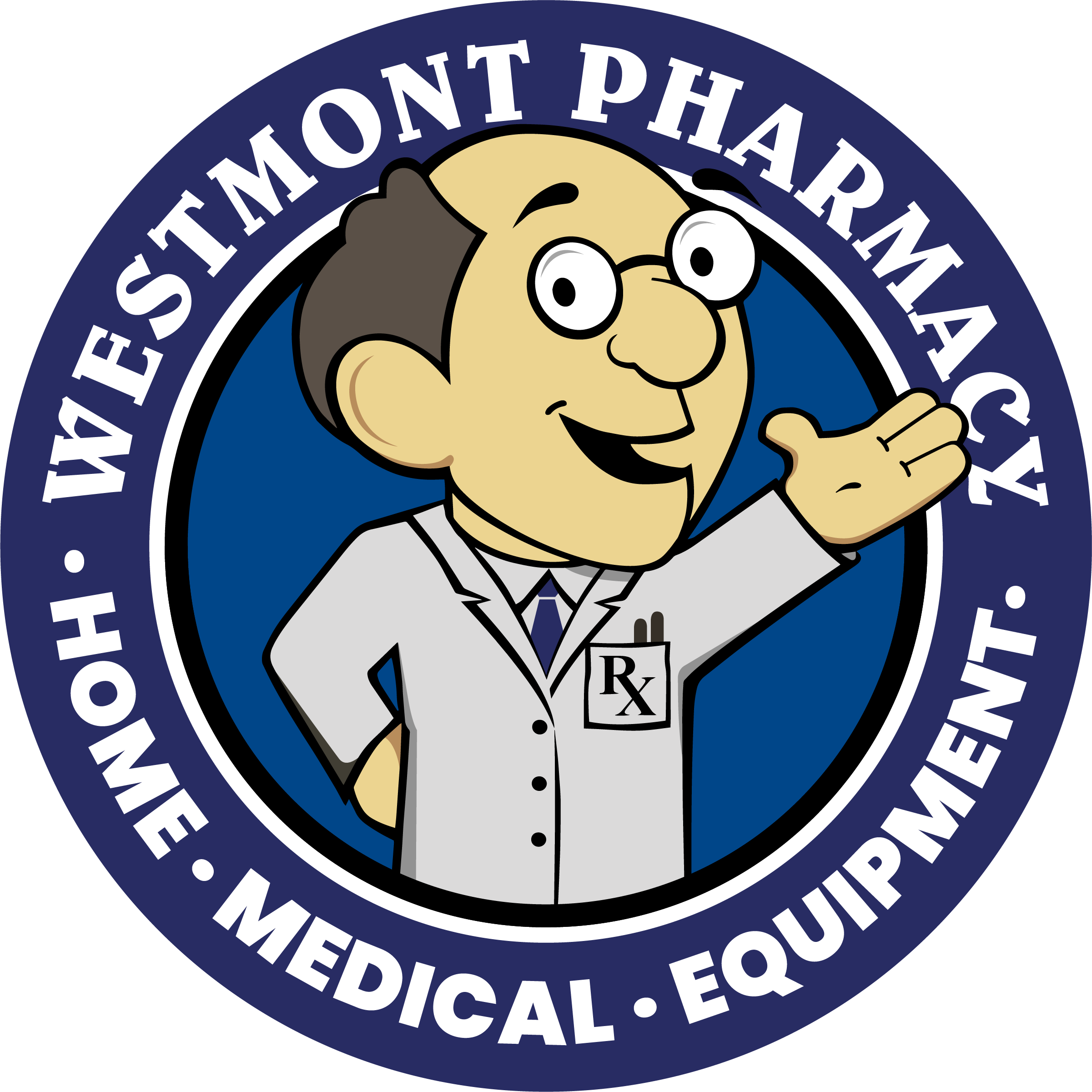Compounded Prescriptions Explained: The Basics and Beyond

What are compounded prescriptions?
Compounded prescriptions are custom medications that a pharmacist creates to meet the specific needs of a patient. Unlike regular medications that you can find at any pharmacy, these are tailor-made for someone’s unique health requirements. Whether it’s a child who needs a liquid form of a pill or an elderly person who can’t handle certain ingredients, compounded prescriptions provide a solution.
- Personalized treatment: Custom doses and formulations
- Unique combinations: Ingredients mixed to address individual health needs
- Alternative forms: Options like liquids, gels, and capsules
- Dietary considerations: Gluten-free, sugar-free, and other special diets
I’m Sazan Sylejmani, an experienced pharmacy manager with a strong background in patient-specific medication needs. My goal is to explain the essentials of compounded prescriptions in a clear and straightforward way, ensuring you understand how they can benefit your healthcare journey.
Next, let’s dive into the details of what compounded prescriptions are and how they’re made custom just for you.
What Are Compounded Prescriptions?
The Process of Compounding
Compounded prescriptions are custom-made medications designed to meet the specific needs of individual patients. Unlike standard prescriptions, these are not mass-produced. Instead, a licensed pharmacist carefully mixes and alters ingredients based on a physician’s prescription.
Here’s how it works:
- Prescription from a Physician: Your doctor identifies your unique needs and writes a prescription for a compounded medication.
- Licensed Pharmacist: A licensed pharmacist then takes over, using pharmaceutical-grade ingredients to create the medication.
- Mixing and Altering Ingredients: The pharmacist combines, mixes, and alters ingredients to achieve the exact formulation needed.
- Specialized Equipment: Sometimes, specialized equipment and sterile conditions are required, especially for injectable or eye medications.
This process ensures that the medication you receive is custom precisely to your health requirements.
Types of Compounded Medications
Compounded medications come in various forms and serve multiple purposes. Here are some common types:
- Pain Management: Medications like gabapentin, baclofen, and ketamine can be compounded to provide effective pain relief custom to your needs.
- Hormone Replacement: Compounded hormones such as progesterone, estradiol, and testosterone offer customized dosages for hormone therapy.
- Dermatology: Custom creams and ointments can be formulated to treat specific skin conditions more effectively.
- Specialized Dosage Forms: For patients who can’t swallow pills, medications can be made into liquids, gels, or even lollipops.
Compounded medications are also crucial during drug shortages. For example, during the COVID-19 pandemic, compounding pharmacies stepped in to provide essential medications when commercial supplies were low.

These customized solutions ensure that everyone, from children to the elderly, receives the medication they need in a form they can use.
Next, we’ll explore the benefits of compounded prescriptions and how they can improve patient adherence and address drug shortages.
Benefits of Compounded Prescriptions
Addressing Drug Shortages
One of the significant benefits of compounded prescriptions is their ability to address national drug shortages. During times of crisis, such as the COVID-19 pandemic, compounded medications provided a critical lifeline. For instance, when foreign countries limited exports and manufacturing plants shut down, compounding pharmacies stepped up to fill the gap. According to a report, up to 11% of all FDA-approved drugs were in short supply in 2011, and the situation worsened during the pandemic. By customizing medications, compounding pharmacies ensured that patients continued to receive essential treatments.
Improved Patient Adherence
Compounded prescriptions can significantly improve patient adherence to their medication regimens. Let’s look at some key factors:
Customized Dosing: Every patient is unique, and so are their dosage needs. Whether it’s a child who needs a lower dose or an elderly patient who requires a specific formulation, compounded medications can be custom to meet these exact requirements.
Allergy-Friendly: Many people are allergic to certain dyes, fillers, or preservatives found in mass-produced medications. Compounded prescriptions can eliminate these allergens, making the medication safer for the patient.
Pediatric and Geriatric Needs: Children and elderly patients often have difficulty swallowing pills. Compounded medications can be made into more palatable forms such as flavored liquids, gels, or even lollipops. This customization ensures that they take their medications without struggle.
Specialized Diets: People on specialized diets, such as gluten-free, sugar-free, or vegan diets, can also benefit from compounded medications. For example, a compounded drug can be formulated to be gluten-free for patients with celiac disease.
Flavoring Agents: Adding flavoring agents to medications can make them more palatable, especially for children. Imagine a child who refuses to take their medicine because it tastes bad. Compounding can solve this issue by adding a flavor they like, making it easier for parents to administer the medication.
Specialized Dosage Forms: Compounded medications can be made into various forms that suit the patient’s needs. For instance, some medications can be made into effervescent drinks or transdermal gels. This flexibility ensures that the medication is not only effective but also easy to use.
Patient-Specific Formulations: Compounded prescriptions are made based on individual patient needs. For example, a patient requiring hormone replacement therapy may need a specific combination of progesterone and estradiol in a precise dosage. Compounding allows for this level of customization, ensuring the patient gets exactly what they need.
By addressing these specific needs, compounded prescriptions make it easier for patients to adhere to their treatment plans, ultimately leading to better health outcomes.
Next, we’ll discuss the risks and challenges associated with compounded prescriptions.
Risks and Challenges of Compounded Prescriptions
While compounded prescriptions offer many benefits, they also come with certain risks and challenges. Understanding these issues is crucial for ensuring patient safety and effective treatment.
Contamination
One of the most significant risks is contamination. Poor-quality compounding can lead to serious infections. For example, in 2012, the New England Compounding Center (NECC) distributed a contaminated steroid injection that caused a fungal meningitis outbreak. This tragic incident resulted in 753 fungal infections and 63 deaths. Investigations revealed unsanitary conditions at NECC’s facilities and violations of compounding standards.
Improper Dosing
Improper dosing is another critical issue. Compounded medications can sometimes have incorrect dosages due to formulation errors. This can lead to either subtherapeutic effects or toxic overdoses. These dosing errors disproportionately affect vulnerable populations like children.
Lack of FDA Approval
Unlike commercially manufactured drugs, compounded medications do not go through the FDA approval process. This means they lack the rigorous testing for safety and efficacy that FDA-approved drugs undergo. Consequently, the quality and effectiveness of compounded prescriptions can vary significantly.
Quality Issues
Quality control is a significant challenge in compounding pharmacies. Issues like poor drug formulation uniformity and drug dissolution problems can affect the medication’s effectiveness. These quality issues can arise from inadequate training, lack of proper equipment, or failure to follow good compounding practices.
Notable Incidents
The 2012 fungal meningitis outbreak linked to NECC was a wake-up call for the industry. The contaminated steroid injections were found to be a suspension rather than a solution, making it impossible to filter out bacteria and fungi. The lack of preservatives also allowed fungal growth. This incident highlighted the critical need for stringent quality control in compounding pharmacies.
Regulatory Oversight
To address these risks, regulatory oversight has been strengthened over the years. In response to the NECC tragedy, Congress enacted the Drug Quality and Security Act (DQSA) in 2013. This legislation gave the FDA more authority to regulate and monitor compounding pharmacies. The DQSA also established “Outsourcing Facilities,” which are required to register with the FDA and adhere to Good Manufacturing Practices (GMP).
However, the FDA does not routinely inspect all compounding pharmacies. Regulatory oversight is often shared with state boards of pharmacy, which can result in varying levels of scrutiny and enforcement across different states. The FDA has also issued guidance on adverse event reporting for outsourcing facilities, urging pharmacists to report any adverse events to improve safety.
Despite these regulations, challenges remain. Only a small percentage of compounding pharmacies are accredited by the Pharmacy Compounding Accreditation Board (PCAB). Increased accreditation and mandatory certification in sterile compounding could further improve safety and quality.
By understanding these risks and regulatory measures, patients and healthcare providers can make more informed decisions about compounded prescriptions.
Next, we’ll answer some frequently asked questions about compounded prescriptions.
Frequently Asked Questions about Compounded Prescriptions
What are examples of compounded drugs?
Compounded drugs are custom-made to meet individual patient needs. Here are some common examples:
- Pain Management: Medications like gabapentin, baclofen, cyclobenzaprine, diclofenac, ketamine, lidocaine, bupivacaine, and flurbiprofen are often compounded to create custom pain relief solutions.
- Hormone Replacement: Compounded hormone therapies include progesterone, estradiol, estriol, and testosterone. These can be customized to achieve the right balance for each patient.
- Pediatric and Geriatric Needs: For children or the elderly who have trouble swallowing pills, medications can be compounded into liquid forms or even flavored to make them more palatable.
What is the difference between a compounded prescription and a manufactured prescription?
A compounded prescription is made specifically for an individual based on a doctor’s prescription. This involves combining, mixing, or altering ingredients to create a medication custom to the patient’s unique needs. For example, a patient allergic to a dye in a commercially available drug could get a dye-free version from a compounding pharmacy.
On the other hand, a manufactured prescription is mass-produced by pharmaceutical companies and is FDA-approved. These medications are available in standard dosages and forms, which might not suit every patient’s needs.
Key Differences:
- Customization: Compounded prescriptions are customized, while manufactured prescriptions come in standard forms and dosages.
- Regulation: Manufactured drugs are FDA-approved, while compounded drugs are not but must meet industry standards.
- Production: Compounding is done by a licensed pharmacist or under their supervision, whereas manufactured drugs are produced in large quantities by pharmaceutical companies.
Can you trust a compound pharmacy?
Trusting a compound pharmacy involves understanding their adherence to safety standards and regulations. Here are some important points to consider:
- Accreditation: Look for pharmacies accredited by the Pharmacy Compounding Accreditation Board (PCAB) or other recognized bodies. Only about 2.9% of compounding pharmacies hold this accreditation, which ensures they meet high-quality standards.
- Adverse Event Reporting: Compounding pharmacies should report any adverse events to the FDA. This helps in monitoring and improving safety standards.
- Regulatory Oversight: Ensure the pharmacy complies with state board regulations and, if applicable, FDA guidelines. The Drug Quality and Security Act (DQSA) provides the FDA with more authority to regulate and monitor compounding pharmacies.
Risks to Watch Out For:
- Contamination: Poor-quality compounding can lead to contamination. The 2012 fungal meningitis outbreak linked to the New England Compounding Center (NECC) is a stark reminder of this risk.
- Improper Dosing: Errors in formulation can lead to incorrect dosages, which can be harmful, especially for vulnerable populations like children.
- Quality Issues: Variability in quality due to inadequate training or equipment can affect the medication’s effectiveness.
By asking the right questions and verifying credentials, patients can make informed decisions about using compounded prescriptions. Always consult with your healthcare provider to ensure that a compounded medication is the best option for your specific needs.
Weight Loss Shots: Mounjaro & Zepbound
Weight loss can be a challenging journey, and compounded prescriptions like Mounjaro and Zepbound offer promising solutions. These medications are designed to help manage weight effectively, providing a customized approach to weight loss.
Mounjaro: A Game-Changer for Weight Loss
Mounjaro is an FDA-approved medication initially developed for type 2 diabetes. It works as a GLP-1 receptor agonist, helping control blood sugar levels and reducing appetite. Though approved for diabetes, it’s often used off-label for weight loss due to its impressive results.
- Effectiveness: Clinical studies show that patients using Mounjaro can lose around 15% of their body weight.
- Dosage: Administered as a weekly injection, the dosage and schedule are determined by a healthcare provider.
- Side Effects: Common side effects include nausea, diarrhea, and abdominal pain. Serious side effects can include pancreatitis and vision changes for people with diabetes.
- Cost: Without insurance, Mounjaro can be expensive, around $1,200 per month.
Zepbound: Dual Action for Improved Results
Zepbound is another powerful option in the weight loss arsenal. Approved by the FDA in 2023, it is a dual GLP-1 and GIP receptor agonist, making it a potent tool for weight management.
- Effectiveness: The dual action of Zepbound improves its effectiveness in controlling appetite and managing weight.
- Dosage: Similar to Mounjaro, Zepbound is administered as a weekly injection.
- Side Effects: Side effects may include gastrointestinal issues and potential serious effects like pancreatitis.
- Cost: Like Mounjaro, Zepbound can be costly without insurance coverage.
Tirzepatide: The Generic Powerhouse
Both Mounjaro and Zepbound contain Tirzepatide as their active ingredient. Tirzepatide is known for its effectiveness in weight loss and diabetes management. Its dual action on GLP-1 and GIP receptors makes it highly effective.
- Profit Margins: From a business perspective, Tirzepatide offers better profit margins due to its effectiveness and demand.
- Patient Benefits: Patients benefit from a medication that not only helps with weight loss but also manages blood sugar levels.
Why Compounded Weight Loss Shots?
Compounded medications like Mounjaro and Zepbound are custom to fit individual needs, making them ideal for those who require specific dosages or formulations not available in commercially manufactured versions. This customization can be crucial for achieving the best outcomes in weight loss.
- Customization: Personalized dosages and formulations ensure that each patient gets the most effective treatment.
- Accessibility: Compounded versions can sometimes be more affordable and accessible, especially during drug shortages.
By choosing compounded weight loss shots, patients receive a personalized approach to their health journey. At Westmont Pharmacy, we ensure that our compounded medications meet high-quality standards, offering you the best in personalized care.

Next, let’s explore how compound interest works in pharmacy savings and the financial benefits it offers.
Conclusion
At Westmont Pharmacy, we believe in providing personalized care custom to each patient’s unique needs. Our expertise in prescription compounding allows us to offer customized medications that address specific health concerns and improve patient outcomes.
Personalized Care
Compounded prescriptions are not just about mixing ingredients; they are about creating medications that fit your individual needs. Whether it’s a child who needs a flavored liquid form of their medication or an elderly patient who requires a lower dosage, our compounding services ensure that each patient receives the right medication in the right form.
Trusted Healthcare Provider
We understand that trust is crucial when it comes to your health. Our team of licensed pharmacists and healthcare professionals are dedicated to maintaining the highest standards in compounding practices. We follow stringent guidelines to ensure the safety, efficacy, and quality of every compounded medication we prepare.
Prescription Compounding
Compounded medications can be a game-changer for patients with unique medical needs. From addressing drug shortages to creating allergy-friendly formulations, our compounding services offer solutions that commercially manufactured drugs cannot.
- Customized Dosing: Custom to meet your specific dosage requirements.
- Allergy-Friendly: Formulations without allergens like dyes or preservatives.
- Specialized Forms: From transdermal gels to flavored liquids, we offer a variety of forms to suit your needs.
Why Choose Westmont Pharmacy?
By choosing Westmont Pharmacy for your compounding needs, you are opting for a trusted partner in your healthcare journey. We are committed to providing high-quality, personalized medications that improve your health and well-being.
For more information on our compounding services and how we can assist you, visit our Pharmacy Services page.
At Westmont Pharmacy, we are dedicated to offering you the best in personalized care through our expert compounding services. Trust us to be your partner in health.
